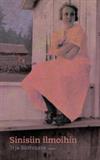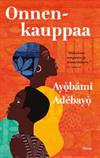
The Namesake: A Novel
by Jhumpa Lahiri | Literature & Fiction | This book has not been rated.
ISBN: 0618485228 Global Overview for this book
ISBN: 0618485228 Global Overview for this book
Registered by sunshinedreem of Frederick, Maryland USA on 12/14/2006
 This book is in a Controlled Release!
This book is in a Controlled Release!
 This book is in a Controlled Release!
This book is in a Controlled Release!
1 journaler for this copy...
This book was given to me unregistered by another BC'er as part of the Holiday Wishlist.
Amazon.com
Any talk of The Namesake--Jhumpa Lahiri's follow-up to her Pulitzer Prize-winning debut, Interpreter of Maladies--must begin with a name: Gogol Ganguli. Born to an Indian academic and his wife, Gogol is afflicted from birth with a name that is neither Indian nor American nor even really a first name at all. He is given the name by his father who, before he came to America to study at MIT, was almost killed in a train wreck in India. Rescuers caught sight of the volume of Nikolai Gogol's short stories that he held, and hauled him from the train. Ashoke gives his American-born son the name as a kind of placeholder, and the awkward thing sticks.
Awkwardness is Gogol's birthright. He grows up a bright American boy, goes to Yale, has pretty girlfriends, becomes a successful architect, but like many second-generation immigrants, he can never quite find his place in the world. There's a lovely section where he dates a wealthy, cultured young Manhattan woman who lives with her charming parents. They fold Gogol into their easy, elegant life, but even here he can find no peace and he breaks off the relationship. His mother finally sets him up on a blind date with the daughter of a Bengali friend, and Gogol thinks he has found his match. Moushumi, like Gogol, is at odds with the Indian-American world she inhabits. She has found, however, a circuitous escape: "At Brown, her rebellion had been academic ... she'd pursued a double major in French. Immersing herself in a third language, a third culture, had been her refuge--she approached French, unlike things American or Indian, without guilt, or misgiving, or expectation of any kind." Lahiri documents these quiet rebellions and random longings with great sensitivity. There's no cleverness or showing-off in The Namesake, just beautifully confident storytelling. Gogol's story is neither comedy nor tragedy; it's simply that ordinary, hard-to-get-down-on-paper commodity: real life.
Amazon.com
Any talk of The Namesake--Jhumpa Lahiri's follow-up to her Pulitzer Prize-winning debut, Interpreter of Maladies--must begin with a name: Gogol Ganguli. Born to an Indian academic and his wife, Gogol is afflicted from birth with a name that is neither Indian nor American nor even really a first name at all. He is given the name by his father who, before he came to America to study at MIT, was almost killed in a train wreck in India. Rescuers caught sight of the volume of Nikolai Gogol's short stories that he held, and hauled him from the train. Ashoke gives his American-born son the name as a kind of placeholder, and the awkward thing sticks.
Awkwardness is Gogol's birthright. He grows up a bright American boy, goes to Yale, has pretty girlfriends, becomes a successful architect, but like many second-generation immigrants, he can never quite find his place in the world. There's a lovely section where he dates a wealthy, cultured young Manhattan woman who lives with her charming parents. They fold Gogol into their easy, elegant life, but even here he can find no peace and he breaks off the relationship. His mother finally sets him up on a blind date with the daughter of a Bengali friend, and Gogol thinks he has found his match. Moushumi, like Gogol, is at odds with the Indian-American world she inhabits. She has found, however, a circuitous escape: "At Brown, her rebellion had been academic ... she'd pursued a double major in French. Immersing herself in a third language, a third culture, had been her refuge--she approached French, unlike things American or Indian, without guilt, or misgiving, or expectation of any kind." Lahiri documents these quiet rebellions and random longings with great sensitivity. There's no cleverness or showing-off in The Namesake, just beautifully confident storytelling. Gogol's story is neither comedy nor tragedy; it's simply that ordinary, hard-to-get-down-on-paper commodity: real life.
I really enjoyed reading this book, it was a great insight to what a family of immigrants might feel and experience moving to this country. I could really feel for Gogol and understand the isolation he felt during his life and I could also relate to the way he felt so embarrassed and irritated by his families traditions. Even though my family has a very different background I can still remember being a teenager and wishing my parents could see things the way I did and not force me to follow their traditions. You could see him growing into adulthood as he started to appreciate his culture and his family more and more each year, especially after he met Moushumi. I think everyone goes through this to some degree, but I can only imagine trying to fit two different cultures together while trying to figure out who you are and what you want in life.
Journal Entry 3 by sunshinedreem at Frederick, Donation -- Controlled Releases on Tuesday, September 23, 2008
Released 15 yrs ago (9/23/2008 UTC) at Frederick, Donation -- Controlled Releases
CONTROLLED RELEASE NOTES:
CONTROLLED RELEASE NOTES:
Put in a box I am giving away on Freecycle.org
Put in a box I am giving away on Freecycle.org







